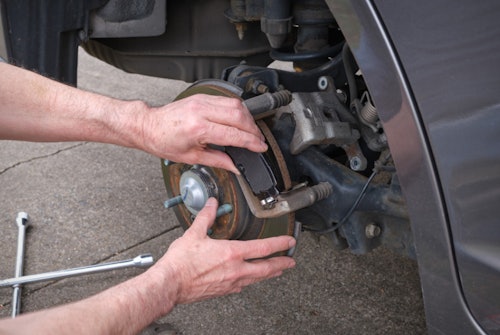Automotive In Depth
United States Automotive Scam Statistics 2020
Source: 2019-20 Consumer Sentinel Report
- Red Flags of Scams Involving Buying and Selling Vehicles
- Beware of These Common Scams
- How to Beat Scams when Buying/Selling Vehicles
- Fallen Victim to a Scam Involving Buying and Selling Vehicles?
According to The U.S. Bureau of Statistics, automobiles and transportation made up between 16% and 17% of American household expenditure in 2019. Being such a high cost and an essential item for most Americans, it is no surprise that it is the 7th largest category in the FTC's Consumer Sentinel Network 2020 Report.
According to the data, there has not been any growth over the past three years, but it remains a significant and established category for scams and fraud. Connecticut, Missouri, New Hampshire, and Ohio had the highest percentage of automotive fraud reports at a state level.
Globally, it's estimated that consumers lose more than $30 billion every year to car buying and selling scams.
Red Flags of Scams Involving Buying and Selling Vehicles
While many feel adequately qualified to spot scams, the statistics reveal that 1 in 10 adults falls victim to one scam every year. With regard to car scams, in particular, a recent FBI report says that scams cost car buyers over $54 million over four years.
The ultimate goal of someone running vehicle scams is to solicit as much money as possible before you realize you're being defrauded. A car-buying scammer will attempt to buy the vehicle online and then reclaim their money after the car is in their possession.
Their methods focus on ensuring you can't reclaim your losses or find the scammer using whatever contact information they provide. So how can you recognize a scam before you become a victim?
When Buying
In general, if it's too good to be true, it probably is. Some red flags of vehicle scams may include a price far below value and photos that look like generic car advertisements or pictures taken in an empty parking lot rather than someone's driveway.
Additionally, the seller may refuse to meet in person, or they may describe the vehicle as being in an unavailable location. Fake escrow services are also a means to lure you into trusting the seller.
When Selling
Beware of a buyer who seems willing to give you your asking price without needing to see or test drive the vehicle in person. They may promise future payment or be willing to make an electronic payment, only to reverse the transaction after the car is delivered.
They end up keeping both the money and the vehicle. And likely, the delivery address was bogus, meaning you won't find them if you go looking.
Beware of These Common Scams
Being aware of the most common scams that target those buying and selling vehicles is the first step to protecting yourself from them. Here are some of the most common tactics scammers use to steal your money and car.
Fake Ads
Scammers may advertise a car they don't even own or have in their possession. The ad may look real, with quality photos, phone numbers, and even email addresses. To verify that an ad is not fake, ask for something that can't be faked, like a vehicle identification number (VIN). Or ask to inspect the car in person and take it for a test drive.
Fraudulent Electronic Transactions
If a seller or buyer wants to make the transaction electronically without ever meeting in person or verifying the genuineness of the sale, beware. So before making any electronic payment, make sure you're confident that there's no way you're being scammed.
Gift Card Ripoffs
The gift card scam has become more common in vehicle sales. It is never a good idea to buy a car with gift cards or accept gift cards as payment. Anyone who requests this is trying to scam you.
Title Washing
A scammer "washes" a car's history away, hiding that it was in a wreck or some other critical information. This is illegal because a vehicle's history should be available to the buyer. Ordering a vehicle's history report is one way to verify whether the title has been washed or not.
Curbstoning
Curbstoning is when someone claims to be a used-car dealer without having the necessary permits or a business location. Since they perform sales curbside or in a parking lot, you won't be able to track them if the deal turns out to be a fraud.
Usually, the car has some damage or other deficiency, but you won't be able to return it or get your money back. So only buy cars from a reputable seller, and do your homework in advance.
Fake Escrow Accounts
A scammer may pose as a buyer and provide an escrow account that looks legitimate but isn't. But after you turn over the vehicle and its title, they withdraw the money from escrow, and you're left with nothing. Make sure the escrow service is reputable before making the transaction.
Payment Plans and Checks
Be cautious when buyers want to make financing arrangements with you rather than a bank or other lending institution. They may even start paying you and promise future payments, but there's no guarantee they'll be faithful to the agreement and pay you in full.
Also, beware of payment by check since a common tactic when executing vehicle scams is to issue a fake check or cancel the payment before it clears.
How to Beat Scams when Buying/Selling Vehicles
- Don't send money before physically inspecting or test-driving a vehicle.
- Don't click on unverified links or attachments in emails or messages.
- Don't pay for a vehicle using gift cards or accept payment in gift cards.
- Don't meet buyers or sellers at suspicious locations.
- Don't be pressured into making a sale or purchase before doing your homework.
- Ask for a VIN and a photo of the title, and order a vehicle history report.
Fallen Victim to a Scam Involving Buying and Selling Vehicles?
If you believe you've been the victim of a scam, there are things you can do to try and reclaim your losses and protect yourself. You can report fraud to the:
- Federal Trade Commission (FTC)
- FBI's Internet Crime Complaint Center
- National Consumer League's fraud center
- Better Business Bureau (BBB)
- Your state Attorney General
To get your money back, you can contact local law enforcement authorities and the institution that handled the transaction to see if there's any way to recover your losses or vehicle. Of course, there's no guarantee you'll be able to get them back, but you'll be protecting yourself and others from future fraud.
To protect your identity when it comes to vehicle scams and other kinds of fraud, you should change your usernames and passwords for financial and personal online accounts. Also, monitor your bank account and credit cards for any suspicious activity.
Scams Relating to Automotive
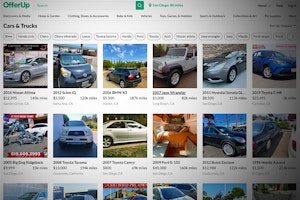
OfferUp Car Scams: Red Flags to Look Out For
Buying a car on OfferUp may be a cheaper option, but it doesn't come without risks.

Common eBay Motors Scams & How to Avoid Them
Don't fall victim to eBay Motors scams. Know the red flags, such as not being able to see the car in person first, a pushy seller, or a strange payment method.
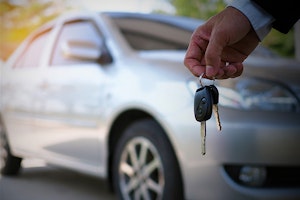
How to Buy a Used Car Safely: Protection From Used Car Scams
Buying a used car from a private seller can save you money, but it can also make you vulnerable to various scams. Protect yourself and your money from used car scams.
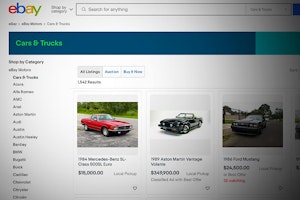
eBay Vehicle Purchase Protection Scam: Check Before You Buy
When buying a car via eBay, make sure you complete the purchase using eBay's system, or it won't be protected and you could lose thousands.
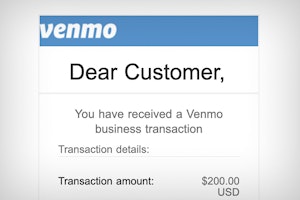
Selling on Facebook Marketplace? Beware of Fake Venmo Emails
Scammers are sending fake Venmo emails to Facebook Marketplace sellers in an attempt to steal login information and money.
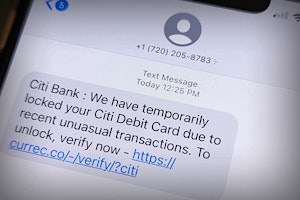
Citibank Text Message Scam: Locked Debit Card Alert Is Fake
If you've received a locked debit card text message from Citibank, it's likely a scam. Don't click on the link and delete the text message.
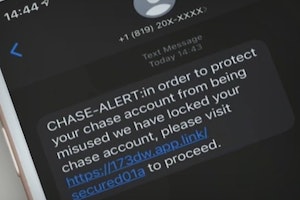
Real Chase Fraud Text Alert or Scam Message?
If you receive a text message from Chase Bank, don't click on any links or call the phone number listed—it could be a scam designed to steal your information and money.

Amex Fraud Text Alert Scams: Spotting a Fraud
If you receive a text message from American Express, don't click on any links or call the phone number listed—it could be a scam designed to steal your information and money.

Fake Verizon Text Messages: How to Avoid a Scam
Verizon may send you text messages from time to time with account updates or data usage alerts, but beware—most of these aren't really from Verizon but scammers.
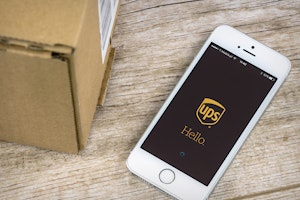
Get an Unexpected Delivery Alert? It May be a UPS Text Scam
Scammers are using SMS messages to send fake alerts to customers regarding a package delivery. Here's what to know about this scam.
Guides Relating to Automotive

Avoid Car Loan Traps with These 4 Questions
When applying for a car loan, you want to make sure you know exactly how much you're paying and the terms and conditions that you're agreeing to.

Personal Loans for Car Maintenance: Pros and Cons
Do you need to maintain your car but are cash-strapped? A personal loan is one way to help deal with financial burdens, but does it apply when trying to repair a vehicle?
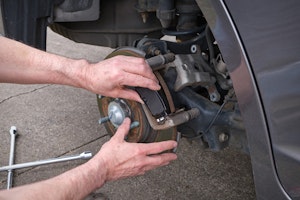
How Often Should You Have Your Brake Pads Changed?
How often to change brake pads on your vehicle depends on how much you drive and also your driving style and habits.

Buying a Car From Costco - Is it a Good Idea?
The Costco Auto Program offers pre-arranged pricing on new and used cars as well as superior service from a range of authorized auto dealers nationwide. So, does it really make sense to buy a car from Costco?

Cars with Cheap Insurance: Lower Your Monthly Costs
In the market for a new car? The cost of the vehicle itself isn't the only thing you want to consider. If you want to keep your costs down, get a car with low car insurance rates.
News Relating to Automotive

Urgent CDC Warning: Eye Drops Linked to 3 Deaths, Loss of Vision
The CDC is warning eye drops users of a rare bacterial infection from 2 brands of eye drops. The infection is resistant to antibiotics and has resulted in the loss of vision, loss of eyeballs and the death of 3 patients.

Banks May Refund More Zelle Scam Victims in 2023
Zelle scams have reached a serious volume. New reports suggest that banks are looking at new refund protections for customers in 2023.

Optus Data Breach - One of the Worst Cyberattacks in Australia
Hackers have gained access to 9.8 million customer records from Optus in Australia, exposing personal information such as driver licence, medicare and passport details.

Roe vs. Wade Overturned: Abortion Rights in Your State
Find out what the overturning of Roe vs. Wade means for abortion rights in your state.
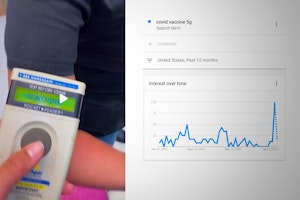
Searches for "COVID Vaccine 5G" Hit All-Time High, But Microchips Definitely Not in Vaccine
The number of people searching for the term "COVID vaccine 5G" on Google has just hit an all-time high, but there's one way to be sure that there are no microchips.

